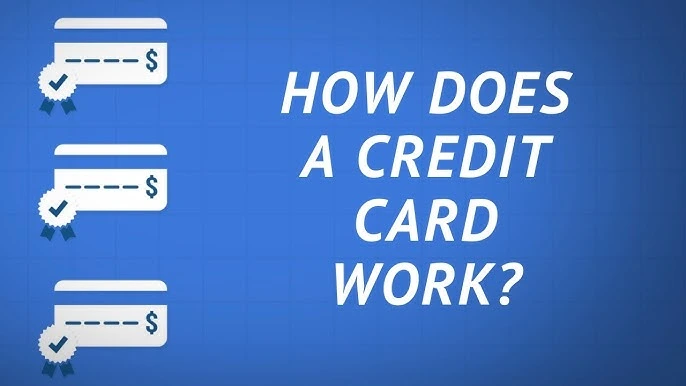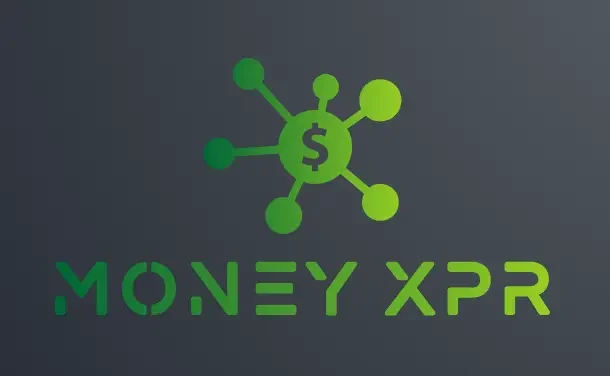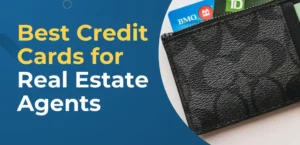Wondering how does a credit card work? This comprehensive guide explains how credit cards function, how they impact your credit score, and the best strategies to use them responsibly for maximum benefit.

Credit cards have revolutionized how we manage money, making it easier to shop, build credit, and access funds quickly. But for those new to credit, the question how does a credit card work can seem overwhelming. Whether you’re considering getting your first credit card or simply want to understand how credit cards impact your finances, this guide will cover everything you need to know.
What Is a Credit Card?
A credit card is a financial product that allows you to borrow funds to make purchases or withdraw cash, with the obligation to repay the borrowed amount, typically with interest. Instead of using your own money, the credit card issuer covers the purchase upfront, and you pay them back later. In essence, a credit card lets you “buy now, pay later.”
Now that we’ve answered how does a credit card work, let’s take a closer look at its key features and components.
How Does a Credit Card Work? Key Components
Understanding how a credit card works is crucial for managing your finances effectively. Below are the main components that define how a credit card functions:
- Credit Limit
Your credit limit is the maximum amount of money you are allowed to borrow from your credit card issuer. For example, if your credit limit is $3,000, you cannot spend more than that unless you pay down the balance. - Interest Rates (APR)
The Annual Percentage Rate (APR) is the interest rate applied to any outstanding balance that you carry from month to month. If you don’t pay your balance in full by the due date, you will incur interest charges. This is a vital factor in how credit cards work. - Minimum Payment
The minimum payment is the lowest amount you must pay by the due date to avoid penalties. However, only paying the minimum can lead to interest charges and a longer repayment period, so it’s best to pay off your balance in full whenever possible. - Billing Cycle
A billing cycle is typically a 30-day period during which your transactions are tracked. At the end of the cycle, your card issuer will send you a statement showing your total balance, minimum payment, and payment due date. - Grace Period
The grace period is the time frame in which you can pay off your balance without incurring interest. This period usually lasts between 21 and 25 days after your statement date.
How Does a Credit Card Work for Purchases?
When you use a credit card for purchases, the process follows these simple steps:
- Making the Purchase
When you swipe, tap, or insert your card at the checkout, you’re borrowing money from your card issuer to pay for the product or service. - Transaction Approval
The card issuer checks whether you have enough available credit to cover the transaction. If approved, the merchant receives payment on your behalf. - Building Your Balance
The purchase amount is added to your credit card balance. If you do not pay your balance in full by the due date, interest will be applied. - Repaying the Borrowed Amount
Each month, you’ll receive a statement showing the total balance, minimum payment due, and due date. If you repay your balance in full, you avoid interest. If not, the unpaid balance will accrue interest, which is one of the key aspects of how a credit card works.
How Do Credit Cards Help Build Credit?
One of the major benefits of understanding how credit cards work is using them to build your credit score. Here’s how credit cards help:
- Credit Utilization Ratio
Your credit utilization is the ratio of your credit card balance to your credit limit. Keeping your balance below 30% of your total limit is an effective way to build credit over time. - On-Time Payments
The most significant factor in your credit score is your payment history. Timely payments are essential to improving and maintaining a good credit score. - Length of Credit History
The longer your credit account has been open, the more positively it can affect your credit score. By maintaining an account and using it responsibly, you show lenders that you’re a reliable borrower.
Different Types of Credit Cards and How They Work
There are several different types of credit cards, each designed to serve specific financial goals. Here’s an overview of the most common types:
- Rewards Credit Cards
How do rewards credit cards work? These cards earn points, cashback, or miles for every dollar you spend. These rewards can be redeemed for merchandise, travel, or cash. - Balance Transfer Credit Cards
A balance transfer card allows you to move existing debt from high-interest cards to a new card with a lower or 0% APR for a limited time. This can help save money on interest as you pay down your debt. - Secured Credit Cards
Secured cards require a cash deposit as collateral, which becomes your credit limit. These cards are ideal for individuals looking to build or rebuild their credit. - Store Credit Cards
These cards are co-branded with retailers and offer perks such as discounts or loyalty points. However, store cards usually come with higher APRs, so it’s important to know how store credit cards work before committing.
How Does a Credit Card Work to Impact Your Credit Score?
Using a credit card can have a direct impact on your credit score. Here’s how:
- Credit Score Factors
Your credit score is influenced by several factors, including credit utilization, payment history, and the age of your credit accounts. Using a credit card responsibly will help improve your score. - Building a Positive Credit History
Credit cards are one of the easiest ways to build a positive credit history, as long as you manage your card properly.
How Does a Credit Card Work in Terms of Fees?
While credit cards provide flexibility and convenience, they come with certain fees. Understanding how credit card fees work is key to avoiding unnecessary charges:
- Annual Fees
Some credit cards charge an annual fee just for having the card, especially those offering premium benefits. - Late Payment Fees
If you miss your payment due date, you’ll incur a late payment fee. Additionally, late payments can hurt your credit score. - Foreign Transaction Fees
Using your credit card abroad may result in a foreign transaction fee, typically around 3% of each purchase. - Cash Advance Fees
Withdrawing cash using your credit card comes with both fees and higher interest rates. It’s best to avoid cash advances unless absolutely necessary.
How Does a Credit Card Work to Prevent Fraud?
Credit cards offer several security features that protect against fraud:
- Zero Liability Policies
Most credit cards offer zero liability for unauthorized transactions, meaning you won’t be responsible for charges made by someone who steals your card. - Fraud Alerts
Many card issuers alert you to suspicious activity via email or text, giving you the chance to freeze your card if necessary. - Chip Technology
Credit cards now often come with EMV chips, providing enhanced security against fraud during transactions.
What Happens if You Miss a Credit Card Payment
- FICO – What Happens if You Miss a Credit Card Payment
- Read more about: FICO Score
Conclusion: How Does a Credit Card Work?
In conclusion, understanding how a credit card works is essential for both managing your finances and building your credit. By learning about credit limits, interest rates, and how to pay off your balance, you can make the most of your credit card while avoiding debt. Using credit cards responsibly helps you build a positive credit history and improves your credit score, ultimately setting you up for financial success.
Related Articles:
- Best Credit Cards for Military Personnel: Top Picks to Maximize Your Benefits in 2025
- Best Prepaid Credit Cards to Build Credit in USA in 2025: Your Ultimate Guide to Improving Your Credit Score
- Best Balance Transfer Business Credit Cards in USA in 2025: Save Big on Interest
How Does a Credit Card Work: FAQs
1. How Does a Credit Card Work?
A credit card allows you to borrow money from a financial institution to make purchases or withdraw cash. You pay back the amount you borrow, typically with interest, depending on whether you carry a balance. Each month, you receive a statement showing your balance, the minimum payment due, and your due date. If you pay off your balance in full, you can avoid interest charges.
2. What Is the Difference Between a Credit Card and a Debit Card?
A credit card allows you to borrow money from a financial institution to make purchases, and you pay it back later, often with interest. A debit card, on the other hand, directly deducts funds from your checking account to cover purchases. Unlike credit cards, debit cards don’t allow you to borrow money, and you can only spend what you have in your account.
3. How Do Credit Card Rewards Work?
Credit card rewards are benefits you earn based on your spending. Rewards can come in the form of cashback, points, or travel miles. For example, you might earn 1 point for every dollar spent. These points can be redeemed for travel, merchandise, gift cards, or even cashback. The key to maximizing credit card rewards is using the card for everyday purchases and paying off the balance in full to avoid interest charges.
4. What Happens if I Don’t Pay My Credit Card Bill?
If you don’t pay your credit card bill on time, you will incur a late fee and possibly a higher interest rate (penalty APR). Additionally, missing payments can negatively affect your credit score, making it harder to get approved for loans or other credit in the future. It’s important to always try to make at least the minimum payment to avoid these penalties.
5. How Does a Credit Card Affect My Credit Score?
A credit card can positively or negatively affect your credit score depending on how you use it. On-time payments and low credit utilization (the ratio of your balance to your credit limit) help improve your score. Conversely, carrying high balances or missing payments can lower your score. Responsible credit card usage, such as paying off your balance in full and maintaining a low balance-to-limit ratio, is key to building good credit.






